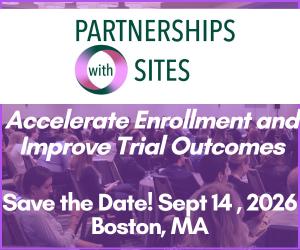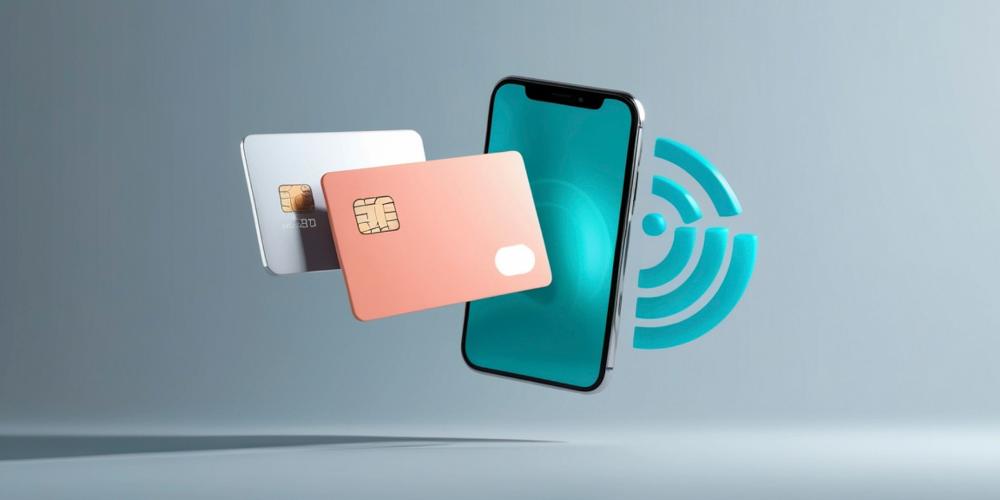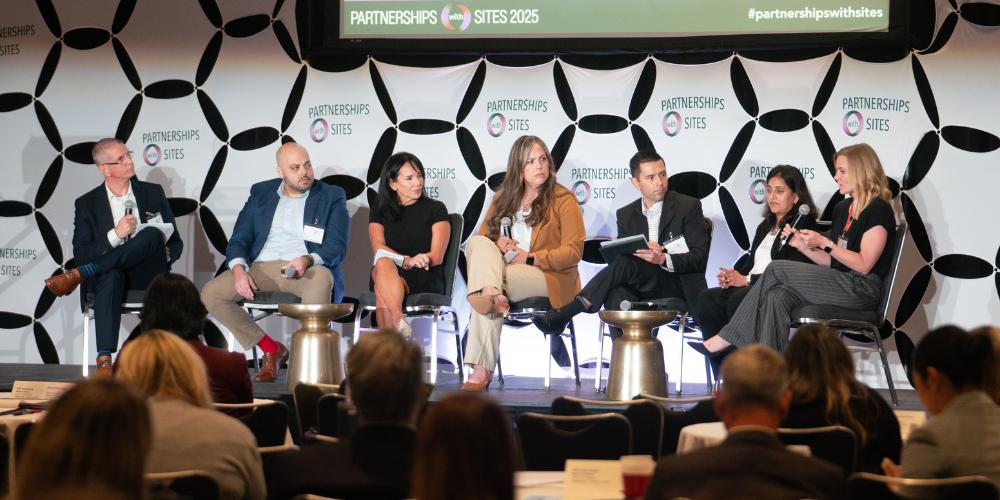One Physician’s Perspective on Increasing the Conversation Around Clinical Research
Suzanne Steinbaum, DO, speaks to the communication required – between doctor and patient, doctor and institution, and doctor and trial – that would make trials a more appealing option for physicians to offer to patients. Dr Steinbaum is the president of SRSHeart, a personalized lifestyle management program, to reach ultimate cardiovascular health.

What do you think prevents providers from thinking of a trial as an option for their patients?
Healthcare has become really about the EMR more than anything. And the world is focused around doing what is needed to be done for that visit that are required by the EMR for billing purposes.
There was an article that came out in the Journal of the American College of Cardiology years ago, and the average time that a doctor could spend with their patient was eight minutes. That includes having a conversation, examining them, doing the electronic medical records, billing, coding, all of that, and the last thing on the list generally would be putting that patient into a clinical trial.
How do providers even hear about trials to then recommend to patients?
That’s the other issue. It depends where you practice. And if you’re in a big academic institution, unless you are affiliated or associated with the department that’s running that trial, you probably don’t know about it.
So as a cardiologist, if I see a patient who has Irritable Bowel Syndrome, and there’s a clinical trial going on in GI, I might not even know, because that’s not my department. In the community, we don’t hear anything, unless we actually look for it. And so there are patients and diseases that I will go out of my way to see if there are clinical trials for them. COVID shed light on the fact that we need a village sometimes to get information about how certain patients should be cared for. But unless we look and search, we are really not going to know.
What could be a way of setting up a system that shares information about trials?
After CRAACO 2020, I really started thinking about how we can do this better. And what becomes really challenging is that each hospital system, each academic institution, is running its own clinical trials.
So is that is that the right way we should do this, or should all patients be open to all clinical trials across all hospital systems? In New York, we know there is competition between hospitals. So how does that work?
There should be sharing of at least what’s happening. And this was a conversation that we had: we’re not sharing data, we’re not sharing outcomes. We’re competitive about research. We’re not inclusive about it. But if we really look at what the end goal is, which is really to find information, change healthcare and improve outcomes, then perhaps this research needs to be open up to everyone.
There’s a difference between the academic physician running the trial, who is going to get published and has their name on the paper, versus the physician who’s actually the clinician who needs that information in order to take care of their patients. Perhaps the silos of the academics can stay that way, but then it needs to be dispersed to the people who are on the frontlines really taking care of the patients. How does that happen?
I am a voluntary physician at Mount Sinai. I should be on the email list to be kept aware of what trials they have running. We don’t do that. It might happen in the hospital within the departments, but it’s not happening to the clinicians.
"There is bad communication between the researchers and the clinician. You send your patient out to be in a clinical trial, and you have no idea what’s going on."
What is the typical clinician perspective of research?
That it is too difficult, that they’re going to lose track of their patients. There is bad communication between the researchers and the clinician. You send your patient out to be in a clinical trial, and you have no idea what’s going on. The patients don’t always know what’s going on. The researchers feel like they did the informed consent, but the patients might do that, and then walk out and have no idea what they’re doing. They might not understand what’s happening, or why they were put on medication. And we as clinicians can’t often get the information.
What is the ideal communication and what is stopping it?
There’s just no system set up for communication between practitioners between researchers. What is interesting is that I can think back to the day when we just had a paper research file. There could be such an easy way to communicate. It could be as simple as an email sent that says, “Your patient showed up. This is what we did today,” sent to the practitioner the second that doctor is put on the list.
Sometimes the practitioner is not even considered to be like the referring physician on file. If I send a patient to a GI doctor, I’m the referring physician. That doctor sees the patient, and I get a letter back that says, “I saw your patient. This is what we decided.”
I have one patient who went on a device trial. She kept asking me questions about it, and I had no information to give her. I would call and there was nobody to actually talk to.
What are the other incentives you think could be built into make clinicians more inclined to pursue research?
Financial incentives are always interesting to think about; I don’t know how that works or if it could. I know some physicians in practices who were doing drug trials had financial incentives to get involved in those drug trials. But from my perspective, it’s all about “How am I going to provide the best quality care to my patients? If I bring them into a trial, will they get better care?” That’s always really interesting to think about.
For example, I’m thinking about women in heart disease trials. I might see these people once every four months, but they’re being seen on a monthly basis for a clinical trial. If it is a lifestyle intervention, we know the more frequent feedback there is, the better that people do. That becomes appealing to me, because my patients are going to be doing better if they get enrolled in these clinical trials. sometimes, these trials are really supporting the work that we’re doing in the office. And if it’s a support to the physician, that’s really appealing.
You discussed your passion for overcoming the bias of women not being offered treatment at CRAACO 2020. How do we make changes to patients being offered research?
I spend an exorbitant amount of time thinking about these things. There’s a true unconscious bias. This is when data and technology can become so important. It started with heart failure. The biggest readmission diagnosis, and it still is today, was heart failure.
It was because there wasn’t a standardization of medication when those patients were discharged. And by the way, we see this across the board in multiple trials with women with heart disease. Women who get discharged from the hospital don’t get the same life-saving medical care that men do, they don’t get referred to cardiac rehab, etc.
So they standardized discharge forms: was the patient given aspirin? An ACE inhibitor? A beta blocker? There was a checklist. And when you have a checklist, your unconscious bias becomes less important. You just have to look at the objective data. This is when algorithms become incredibly important. But in saying that, does every person fit into an algorithm? And if they don’t, what happens to that person?
That’s when you become a physician, listening to the words and interpreting them. So if someone says, I’m having chest pain, and you ask all the appropriate questions, and they don’t fit into the box, then where do you go? You might find out that they’re having chest pain because they’re so stressed out and they don’t have enough money to buy food for their kids. Is it chest pain from heart disease? No, but it’s chest pain from some other serious stuff that we have to address. And if you don’t open your mind to the potential and possibilities of what something could be, you’re not going to be treating that patient thoroughly and in the right way.
"We’re all working together to change healthcare, outcomes and health. The more that we can include patients, the more that we can talk about these trials and get patients enrolled, the better off we are."
If you could change one thing about how clinical research is done to better benefit patients and providers, what would it be?
Communication. It’s not a competitive sport, and it should not be siloed. We’re all working together to change healthcare, outcomes and health. The more that we can include patients, the more that we can talk about these trials and get patients enrolled, the better off we are. This protective nature, this siloed nature and this lack of communication has been one of the biggest problems. The academics will stay here; the clinicians are going to stay here and the people that are losing out are the patients.
It should be about opening it up to as many patients and giving access to as many people as we can. That would change everything if we could figure that out. And I believe that we can do it much more easily than we think.
You can query everything on an EHR. This has to exist, because we can query everything else. So why if I have a 50 year old woman postmenopausal with hypertension, does that not populate “These are the women and heart disease trials going on in your institution?”
Multiple hospital systems in New York City use the same electronic medical record. Why can’t we get that populated from the other institutions? As a physician at Mount Sinai, am I allowed to send my patient to NYU for a clinical trial? Let’s give patients the best access to all the trials that we can, with the idea that we’re not going to lose them, we’re still going to be in charge, the institution isn’t going to suffer, and we’ll all be better off at the end.
For more information on CRAACO: Clinical Research as a Care Option, visit CRAACOevent.com.







